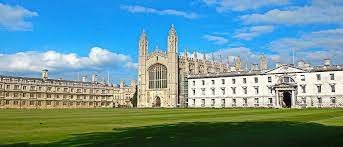Pursuing higher education in a foreign country can be both an exhilarating and daunting experience. For many international students, Russia stands out as a prime destination due to its rich cultural heritage, renowned education system, and diverse study opportunities. Specifically, individuals holding HND (Higher National Diploma) certificates, or undergraduate degrees with Second Class or 3rd Class honors, might wonder about their eligibility for Masters Degree Programs in Russia.
This blog post aims to shed light on the schools and universities in Russia that welcome such candidates into their postgraduate programs.
Criteria For Admission Into Masters Program In Russia
Securing a spot in a Masters Program in Russia, especially for international students holding HND (Higher National Diploma) certificates, or undergraduate degrees with Second Class or 3rd Class honors, involves navigating specific admission criteria. These requirements may vary slightly depending on the institution, but generally, the following criteria are essential for consideration:
- Recognition of Qualifications: Before applying, ensure that your HND or undergraduate degree is recognized by the Russian educational system. Some universities may require an equivalency evaluation, which assesses if your qualifications meet the Russian standard.
- Language Proficiency: Proficiency in the Russian language is often a prerequisite, especially for programs taught in Russian. Applicants may need to pass a test such as the Test of Russian as a Foreign Language (TORFL). However, for programs offered in English, proof of English proficiency through tests like IELTS or TOEFL is required.
- Motivation Letter: A well-crafted motivation letter explaining your reasons for choosing the specific program and institution, your career aspirations, and how the program aligns with your professional goals is crucial.
- Letters of Recommendation: Letters from academic or professional references that vouch for your qualifications, work ethic, and suitability for the program can significantly bolster your application.
Meeting these criteria is the first step towards pursuing a Masters Degree in Russia. It’s advisable to directly contact the admissions office of the universities you’re interested in for specific requirements and advice on preparing your application.
Schools in Russia that Accept HND Certificates, Second Class and 3rd Class for Masters Degree Programs
Discovering the right school for pursuing a Master’s degree in Russia can be a transformative step for international students, particularly those with HND (Higher National Diploma) certificates or undergraduate degrees classified as Second Class or 3rd Class. While specific admissions criteria may vary, several schools and universities across Russia offer opportunities tailored to meet the educational backgrounds of these students. Here’s a closer look at some institutions that are known for their inclusive admissions policies:
1) Lomonosov Moscow State University (MSU)
MSU is one of Russia’s oldest and most prestigious universities, offering a wide range of undergraduate and graduate programs across various fields. While admission requirements may vary by program, MSU is known for its academic excellence and may consider applicants with diverse educational backgrounds for admission into master’s programs.
2) Saint Petersburg State University (SPbU)
SPbU is another top-ranked university in Russia, offering a variety of undergraduate and graduate programs. The university has a strong international reputation and may consider applicants with non-traditional qualifications for admission into master’s programs.
3) Novosibirsk State University (NSU)
NSU is located in Novosibirsk and is known for its emphasis on science and research. The university offers a range of undergraduate and graduate programs and may consider applicants with diverse educational backgrounds for admission into master’s programs.
4) Tomsk State University (TSU)
TSU is located in Tomsk and is one of the leading universities in Russia. The university offers a variety of programs in science, engineering, humanities, and more. While specific admission criteria may vary, TSU may consider applicants with non-traditional qualifications for admission into master’s programs.
5) Ural Federal University (UrFU)
UrFU is located in Yekaterinburg and is known for its strong emphasis on innovation and entrepreneurship. The university offers a range of undergraduate and graduate programs and may consider applicants with diverse educational backgrounds for admission into master’s programs.
Each of these institutions values the unique perspectives and experiences that international students bring to their campuses. Prospective students are encouraged to reach out directly to the admissions offices of these schools for detailed information on program specifics, application requirements, and how their previous academic achievements can align with the opportunities available.
Universities in Russia that Accept HND Certificates, Second Class and 3rd Class for Masters Degree Programs
A number of Russian universities are open to students with HND (Higher National Diploma) qualifications, including second and third class qualifications, for admission into master’s degree programs. These include some of the country’s leading universities, such as Moscow State University, Saint Petersburg State University, Kazan Federal University, and the Higher School of Economics. HND qualifications from approved institutions are considered equivalent to bachelor’s degrees in Russia, and can therefore be used to apply for postgraduate study.
Bauman Moscow State Technical University
Esteemed for its engineering and technical programs, Bauman University offers a range of Master’s degrees that are accessible to students with a wide variety of academic backgrounds. Its commitment to innovation and research makes it an attractive option for students aiming to advance in technical fields.
Moscow Institute of Physics and Technology (MIPT)
With a strong emphasis on scientific research and technological advancement, MIPT is an excellent choice for students interested in physics, aerospace, and related fields. The university assesses applicants on an individual basis, considering their overall academic and research potential.
Far Eastern Federal University (FEFU)
Located in Vladivostok, FEFU is known for its global outlook and extensive range of study programs. It is particularly welcoming to international students, including those with HND certificates or lower undergraduate classifications, especially in areas related to maritime studies and Asian-Pacific studies.
Kazan Federal University
One of the oldest universities in Russia, Kazan Federal University offers a diverse array of Master’s programs in the sciences, humanities, and social sciences. It is known for its flexible admission policies, catering to students from a variety of academic backgrounds.
Novosibirsk State University (NSU)
Positioned in the heart of Russia’s scientific research community in Siberia, NSU is a leading institution for those interested in scientific research and innovation. Its Master’s programs are open to students with HND certificates and lower undergraduate honors, particularly in natural sciences and mathematics.
Peter the Great St.Petersburg Polytechnic University
This university is renowned for its engineering, IT, and technical sciences programs. It has a history of accommodating students with diverse educational backgrounds into its Master’s degree programs, focusing on practical skills and industry collaboration.
These universities exemplify Russia’s approach to higher education, valuing diversity and potential in their admissions processes. Each offers unique opportunities for international students to pursue their academic and professional goals, underscoring the importance of researching specific program requirements and reaching out to admissions counselors for guidance on the application process.
FAQS
Can I do Masters with HND certificate?
Yes, in many cases, you can pursue a master’s degree with a Higher National Diploma (HND) certificate. However, admission requirements vary by country, university, and program. Some universities may accept HND holders into master’s programs, while others may require additional qualifications or prerequisites.
Does Poland accept HND for Masters?
Poland may accept Higher National Diploma (HND) qualifications for admission into master’s programs, depending on the policies of individual universities and specific program requirements. It’s essential to research and verify the admission criteria of each institution in Poland.
Does Germany accept HND for masters degree?
Germany may accept Higher National Diploma (HND) qualifications for admission into master’s degree programs, depending on the policies of individual universities and specific program requirements. It’s essential to check with individual universities for their specific policies.
Does Sweden university accept HND for Masters?
Some universities in Sweden may consider applicants with HND qualifications for admission into master’s programs, depending on the institution and program requirements. It’s essential to check with individual universities for their specific policies and admission criteria.
Can someone with HND go for Masters in abroad?
Yes, individuals with Higher National Diploma (HND) qualifications can often pursue master’s degrees abroad. Many universities around the world accept HND holders into their master’s programs, but admission criteria may vary between institutions and programs. It’s advisable to research the admission requirements of each university you’re interested in applying to.
Conclusion
The universities and schools listed in this blog post are just a few examples of the many institutions in Russia that value potential and dedication over conventional academic distinctions. By offering a place for students with HND certificates, Second Class, and 3rd Class honors, these institutions affirm their commitment to providing quality education to a broad spectrum of learners. Their willingness to assess candidates on a case-by-case basis, considering the entirety of their academic and professional journey, highlights a forward-thinking approach to higher education.
By embracing this chance, students embark on a transformative journey that not only advances their academic credentials but also immerses them in the vibrant culture and intellectual heritage of Russia. This opportunity to study in a nation renowned for its educational excellence and innovative spirit is one that promises to open doors to a future of endless potential and achievement.






